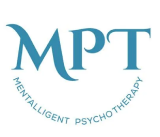ACCENTUATE THE POSITIVE
Okay. So, I’m showing my age here, but there was this title song by Johnny Mercer and the Pied Pipers way back in the big band era of 1944. It topped the music charts that year and has been a cover song more recently for Paul McCartney in 2012, Barry Manilow in 2014, and Van Morrison in 2023. That means “Accentuate the Positive” is a music legacy. The first line is “Accentuate the positive. Eliminate the negative. That’s what it’s all about.”
In Positive Psychology, a field heralded by researcher Martin Seligman in 2000, therapy interventions are all about accentuating the positive. In The Healing Journey: Overcoming Adversity on the Path to the Good Life, I identify positive psychology as one of three primary treatment strategies artfully interwoven to comprise Mentalligent Psychotherapy (MPT).
Our patients are stuck in the mire of trauma, heavy emotions, and multiple stressors. These are the sources of downward spiraling on their journeys. Clinicians who practice MPT become their guides on a healing journey, helping them get unstuck, and begin an upward spiraling on their path to the good life. We do that, in part, by helping them accentuate the positive in their lives and eliminate the negative.
Our work is more than simply giving patients happy thoughts. Seligman chose the Greek word, eudaimonia, to capture the therapeutic emphasis of positive psychology. The word translates “human flourishing.” How expansive. How descriptive of focusing on living the good life.
In my clinical practice, I encourage patients to complete two behavioral assessment instruments. One is from Arnold Lazarus’ work, The Multimodal Life History Questionnaire (MLHQ), while the other is Seligman’s Values-In-Action Inventory of Strengths (VIA-IS). The former helps patients objectify what’s wrong in their lives, while the latter captures what’s right. With these foundations, we can help our patients find their path out of the muck and mire of their lives and equip them with the resources to improve their stress management and strengthen their resilience.
After giving your patient ample time to go down their rabbit hole of distress and despair, hearing their woe with active listening and empathy, give her an opportunity to settle. She will feel relief simply from getting it all out. However, settling is helpful but not enough. With mentalligent psychotherapy, you then switch to challenging them to flourish even in their despair.
“So, Sharon. What you’ve shared with me is horrible. I can’t imagine going through it all.”
“Tell me about it. Yeah. It was rough.”
“Well, I have both a truth and a challenge for you.”
“What’s the truth?”
“It’s good news. You have absolutely no control over all this mess you are having to deal with. You do, however, have every control over how you respond to it all.”
“Okay,” Sharon thought about the truth. “What’s the challenge?”
“I wonder how you can find some good in all the bad you’ve had to deal with?”
Human flourishing, eudaimonia, defines positive psychology and defines your taking control over your responses to adversity. By doing so, you will put yourself on a quest to find the good in the bad things that happen to you. Accentuate the positive, eliminate the negative. That’s what positive psychology is all about.
Blessings,
Jon
